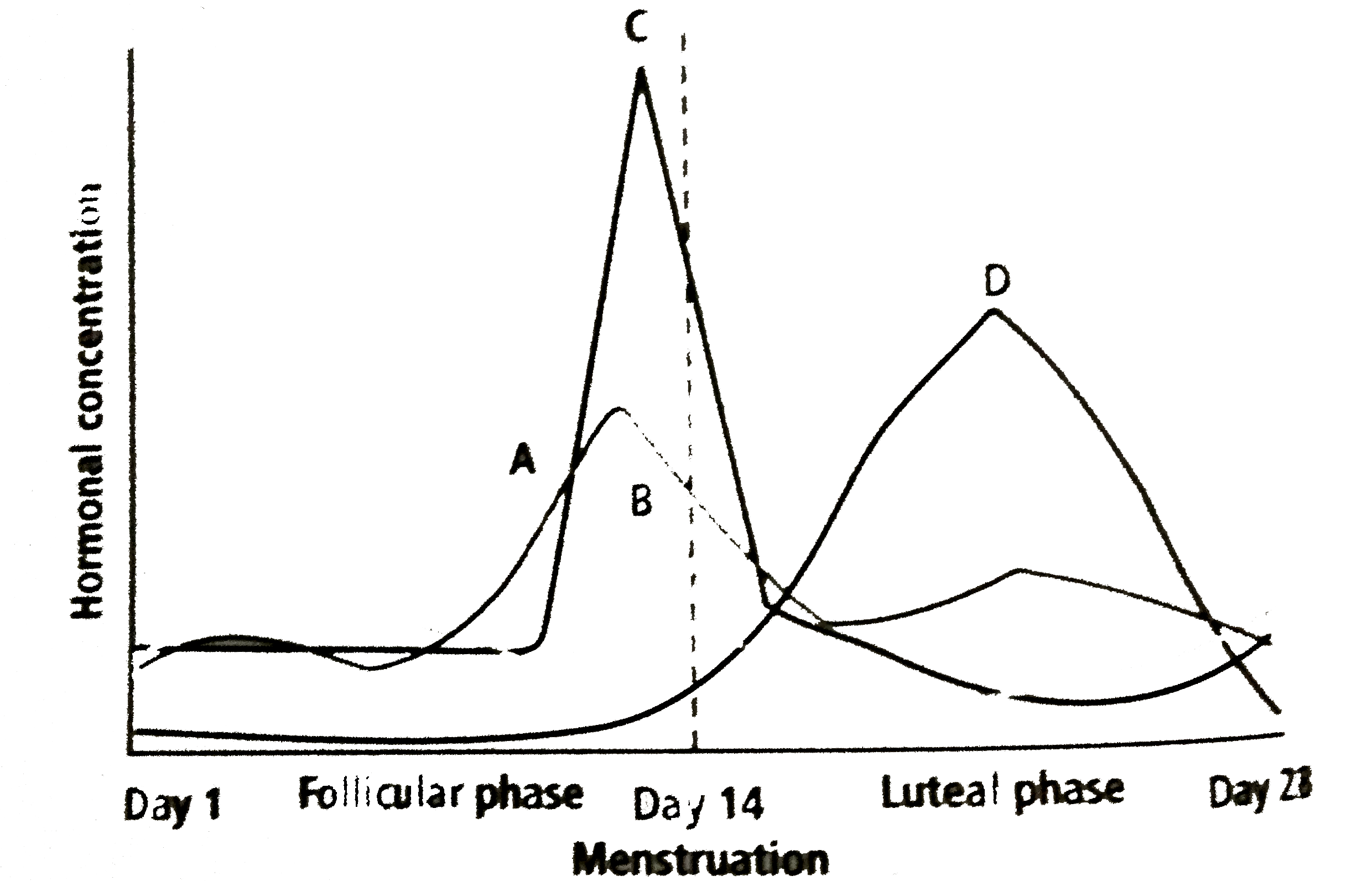Hormone excreted in females in urine after menopause is
STH
LH
FSH
LTH
The correct Answer is:C
Step-by-Step Solution:
1. Understanding Menopause:
- Menopause marks the end of a woman's reproductive cycle and is characterized by the cessation of menstruation. It typically occurs in middle age and signifies that the ovaries no longer release eggs.
2. Hormonal Changes Post-Menopause:
- After menopause, the levels of certain hormones in the body change significantly. One of the key hormones involved in the female reproductive system is Follicle-Stimulating Hormone (FSH).
3. Role of FSH:
- FSH is produced by the anterior lobe of the pituitary gland and is responsible for stimulating the growth of ovarian follicles in females. However, after menopause, the ovaries do not respond to FSH as they did before, leading to changes in its levels.
4. Excretion of FSH:
- Even though ovarian function declines after menopause, FSH continues to be produced and is eventually excreted in the urine. This is an important point because it indicates the hormonal changes occurring in the body.
5. Conclusion:
- Therefore, the hormone that is excreted in the urine of females after menopause is Follicle-Stimulating Hormone (FSH).
Final Answer:
The hormone excreted in females in urine after menopause is Follicle-Stimulating Hormone (FSH).
---
- Menopause marks the end of a woman's reproductive cycle and is characterized by the cessation of menstruation. It typically occurs in middle age and signifies that the ovaries no longer release eggs.
- After menopause, the levels of certain hormones in the body change significantly. One of the key hormones involved in the female reproductive system is Follicle-Stimulating Hormone (FSH).
- FSH is produced by the anterior lobe of the pituitary gland and is responsible for stimulating the growth of ovarian follicles in females. However, after menopause, the ovaries do not respond to FSH as they did before, leading to changes in its levels.
- Even though ovarian function declines after menopause, FSH continues to be produced and is eventually excreted in the urine. This is an important point because it indicates the hormonal changes occurring in the body.
- Therefore, the hormone that is excreted in the urine of females after menopause is Follicle-Stimulating Hormone (FSH).
The hormone excreted in females in urine after menopause is Follicle-Stimulating Hormone (FSH).
Topper's Solved these Questions
- CHEMICAL COORDINATION AND REGULATIONBook:DINESH PUBLICATION ENGLISHChapter:CHEMICAL COORDINATION AND REGULATIONExercise:Check Your Grasp
Explore 10 Videos
- CHEMICAL COORDINATION AND REGULATIONBook:DINESH PUBLICATION ENGLISHChapter:CHEMICAL COORDINATION AND REGULATIONExercise:Brain Teasers-V
Explore 114 Videos
- CELL CYCLE (CELL DIVISION)Book:DINESH PUBLICATION ENGLISHChapter:CELL CYCLE (CELL DIVISION)Exercise:BRAIN TEASERS-III
Explore 85 Videos
- CHORDATA- PROTOCHORDATABook:DINESH PUBLICATION ENGLISHChapter:CHORDATA- PROTOCHORDATAExercise:CYG
Explore 11 Videos
Similar Questions
Knowledge Check
Refer to the given graph representing interplay of different hormones (A-D) during menstrual cycle in women and answer the question that follow.

Which hormones are excreted in urine after menopause?AABBCCDBoth b and cAssertion: A woman passes hCG in the urine during pregnancy.
Reason: Excess hormones are excreted by kidneys. hCG in the urine is the basis for pregnancy.AIf both Assertion and Reason are true and the Reason is the correct explanation of the Assertion.BIf both Assertion and Reason are true and the Reason is not the correct explanation of the Assertion.CIf Assertion is true but the Reason is false.DIf both Assertion and Reason are false.A patient of diabetes mellitus excretes glucose in urine even when he is kept on a carbhohydrate free diet. It is because
Afats are catablised in adipose tissues to form glucoseBamino acids are catabolised in kidney to from glucoseCamino acids are dischaerged in blood steam from liverDglycogen from muscles is released in blood stream.
Vitamin excreted by urine in higher vertebrates is
View SolutionWhich of the following hormone appears in urine of female during her fertile peroid?
View SolutionExcretion of dilute urine is due to
View SolutionMenopause occurs in females at the age of
View SolutionAssertion: The estrogen level falls after menopause.
Reason: The estrogen is synthesised and secreted mainly by uterine lining.
View Solution
